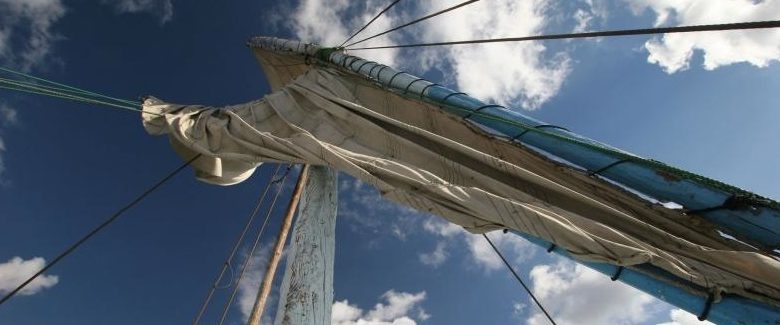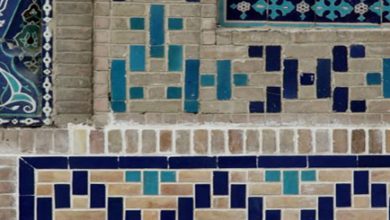MUSA AS – PART 1

And the wife of Pharaoh said, “[He will be] a comfort of the eye for me and for you. Do not kill him; perhaps he may benefit us, or we may adopt him as a son.” And they perceived not. [28:9]
She was correct, the presence of the baby altered the course of her life. Years later, she would come to embrace Islam, and through this baby that she had rescued, she would be led to her palace in Paradise.
Hence the biggest irony: the tyrant king who had heartlessly commanded for all newborn boys to be murdered, was unwittingly the one who would raise the very person whose existence he tried to prevent. Thus adopted, Musa grew up under the wing of Pharaoh and lived in the comfort of his palace until he reached adulthood. As stated in the Qur’an, they were to be mutual enemies, but until then, it was written by Allah that Pharaoh was to take care of Musa AS.
Reunited at Last
Meanwhile, the heart of Musa’s AS mother was void but for the thoughts of him; she was distressed and worried about his fate. She would have reached breaking point and blurted the secret of his identity had Allah not placed steadfastness and faith in her heart.
Allah in His infinite wisdom prevented Musa AS from suckling all the wet nurses presented to him at the palace. He refused to eat or drink, and eventually, the situation became critical. They sent the hungry baby, under the care of a group of midwives and other women, to the market in order to seek someone who could be hired to feed him. His sister, without revealing her true identity, offered to introduce them to a woman who could breastfeed him. She led the entourage to her house, and once reunited with his birth mother, Musa AS immediately started suckling, much to everyone’s relief.
A messenger was sent to Asiah AS to relay the happy news. Not knowing the true identity of Musa’s AS mother, she offered for her to live in her palace in order to continue suckling the child, but Musa’s AS mother declined, explaining that she had a husband, children and other obligations at home to attend to. So, a deal was struck, where they mutually agreed for Musa AS to be dropped off at her home every day to suckle, and moreover, that she was to be given a grant to cover all her expenses. Again, what a strange turn of events, that the Pharaoh who had set out to kill him ended up paying for his upkeep and that of his family!
As Allah had promised: So We restored him to his mother that she might be content and not grieve and that she would know that the promise of Allah is true. But most of the people do not know. [28:13]
The Killing and the Escape
Musa AS stayed in the palace of the Pharaoh until “he reached his full age and was firmly established” (28:14), which according to many scholars, meant that he stayed there until he was approximately forty years old.
One afternoon, he was walking in the city when he witnessed a fight between a man from his own people, and another from his enemy, an Egyptian Copt. The man from Bani Israel pleaded for Musa AS to help, and the latter responded by striking the Egyptian Copt with his fist. However, this blow was so forceful that the man died, such was Musa’s AS strength. This death blow was unintentional, and Musa AS prayed “O My Lord! I have wronged myself, so please forgive me.” [28:16] Allah forgave him. He said, “My Lord, for the favor You bestowed upon me, I will never be an assistant to the criminals.” [28:17]
He feared exposure for his crime and was walking in the city when suddenly he saw that the man who sought his help the previous day was in a fight with another Egyptian man. He cried out to Musa AS again for help. Musa AS said to him, “Indeed, you are an evident, [persistent] deviator.” He was about to hit the Egyptian when the man said: “O Moses, do you intend to kill me as you killed someone yesterday? You only want to be a tyrant in the land and do not want to be of the amenders.” [28:19]
This stinging statement made Musa AS stop in his tracks. It was evident that the news of his alleged crime had spread throughout town. According to the Qur’an: “And a man came from the farthest end of the city, running. He said, ‘O Moses, indeed the eminent ones are conferring over you [intending] to kill you, so leave [the city]; indeed, I am to you of the sincere advisors.‘” [28:20]
This messenger provided the dreaded confirmation that the news had reached Pharaoh, and an army of Pharaoh’s police had already been deployed to capture Musa AS.
With Pharaoh’s net closing in around him, Musa’s AS only option was to leave the city. Thus his stay at the palace came to an abrupt end. So he left it, fearful and anticipating [apprehension]. He said, “My Lord, save me from the wrongdoing people.” [28:21] With just the clothes on his back, he fled and headed to Madyan, where he stayed in exile for over a decade.
Lessons Learnt
The very circumstances of Musa’s AS birth is the epitome of the journey of faith in Allah. It shows that if one relies and has faith in Allah, Allah can take any situation and make it work in his favour. The wisdom of Allah is above our limited wisdom. For example, to us a river denotes drowning and peril, while in the case of Musa AS, it became a passage of transportation to lead him peacefully to safety.
This is what we have to learn, that the only owner of destiny is Allah. The calamities that occur in life are designed to test our faith, on whether we believe in the condition, or whether our faith lies in the Owner of the condition. If we overlook the mirage of the condition, the Owner of the condition will take care of us, for all situations were created and generated by Him. This is why when we are met with calamities, one of our responses should be “innalillahi inna illaihi rajiun” – loosely meaning, from Allah we come and to Allah we will return. However, we cannot dwell on our calamities, and instead, we should place our complete faith and trust in Allah SWT.
The story of Musa AS reinforces a major point about qadr, fate or destiny. It shows us the wisdom of Allah, and that what He has written will never be changed. Such stories are to be listened to by the heart, not just with the eyes and mental faculties. The story teaches us to recognise that the plan of Allah is above all else. The very life of Musa AS is in itself the journey of faith, and we shall see from beginning to end, is a journey against all rules and conventions. The underlying message is simple, all we need to get by in life is to have faith in Allah.


![Photo of ADAM AS [ PART 1]](/wp-content/uploads/2020/09/d6086de322f98f66cc694f32ea284557_XL_0-390x220.jpg)
![Photo of ADAM AS [ PART 2 ]](/wp-content/uploads/2020/09/106117794.Gu9ZCkGy-390x220.jpg)
![Photo of NUH AS [ PART 1]](/wp-content/uploads/2020/09/130243396.pTC5gkej-390x220.jpg)